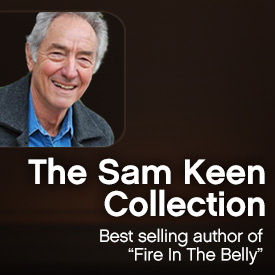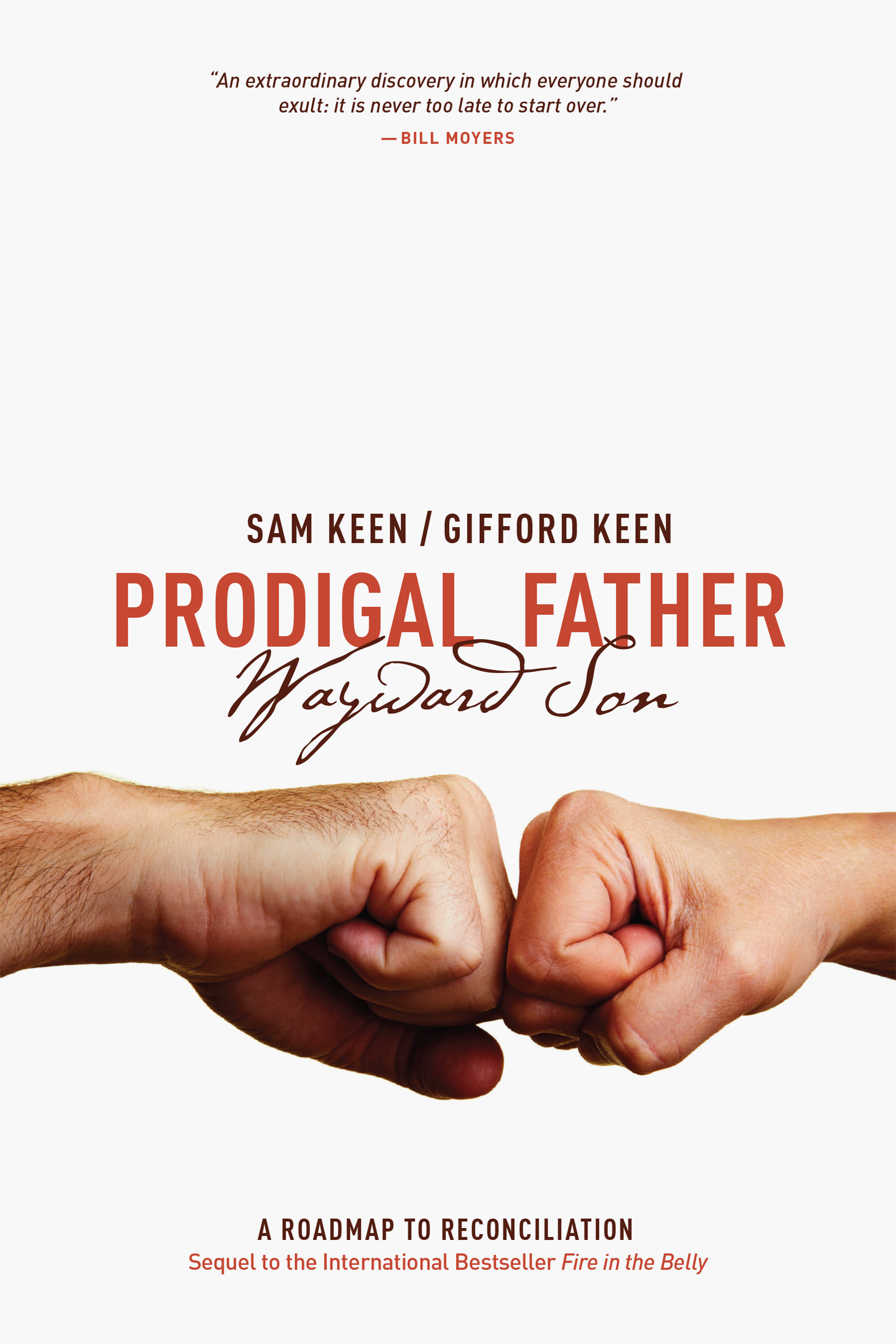Courageous Inquiry. (For Emory University)
Sam Keen: Notes, Reflections, Questions.
As a master idea “courageous inquiry” implies:
1. Heartful thinking ( fr. cuer “the heart as the seat of intelligence or feeling”)
2. Willingness to face danger, take risks, and tolerate anxiety.
3. Inquiry involving moral and/or political questions.
4. An existential commitment to the quest.
Some characteristics of courageous thinkers:
Creative dissatisfaction with accepted answers.
Willingness to break taboos.
Ability to live with disapproval and criticism.
Capacity to suspend certainties.
A ludic disposition–delight in playing with possibilities
Enjoyment of solitude.
The ability to remain silent, to listen and move slowly. (Siddharta–I can think. I can wait. I can fast.)
Love of paradox and contradiction.
Intolerance for departmental boundaries.
A good bullshit detector to sniff out stale solutions, moribund paradigms, sacred cows and self-serving ideologies.
An appreciation of the difference between a problem and a mystery. (Marcel).
An abiding love of questions.
There would seem to be inquiry that is vigorous but not necessarily dangerous or heartful. This may be the distinction between the sciences and the humanities. Austin Ferrar said: “Scientific knowledge is that type of knowledge that can be passed from one person to another without repentance ie. without a high degree of self-knowledge. Electrical engineering and Dentistry would not seem to require skill but not existential courage. Which colleges, departments of the University specialize in forms of knowledge requiring rigor but not courage? (To question the governing paradigm of modernity “Technological progress is both inevitable and beneficial” would require a high degree of courage and risk.)
Courageous inquiry involves the willingness to turn around, change perspectives, be self critical (metanoia). As Socrates demonstrated, self-knowledge is purchased at a high cost. In the beginning, self-knowledge is bad news—an awareness of one’s habitual errors. Thus, Freud On Dreams is one of the great examples of courageous inquiry—the lonely descent into the irrational unconscious. Does all courageous inquiry involve a heroic quest, a la Joseph Campbell?
What aspects of the University are “too academic”, too “ivory tower”?
Does courageous inquiry necessarily involve action?
I think not. Hannah Arendt said that sometimes the most virile thinking happens in solitude. Nietzsche also.
What is the relation between tenure and courage? Is tenure usually given to the disturbers of the status quo or is it a reward for longevity and adherence to the norms of departmental disciplines ? How would you reform the tenure system to advance heartful inquiry?
Does the climate of competition and the atmosphere of academic politics hamper courageous inquiry?
Are there virtues the University should celebrate and promote that do not have primarily to do with thinking? Wonder ? (The beginning point of philosophy according to Aristotle)
Gratitude? Care. Empathy? Imagination? Compassion? Reverence? How are these values and virtues taught? Or, might they be learned but not taught? From whom do students learn magnanimity?
What is the responsibility of the University to create a public person, to educate citizens, to promote civic virtues? How is political inquiry and passion taught? By whom? What are the limits of political advocacy?
What skills, virtues, habits, varieties of experience, modes of philosophical awareness should a student acquire in four years at a University?
What is the role of students in generating a community of courageous inquiry? Is the University a top down institutions? Should it be?
What it means ”to get the questions in the wrong order”
The meta-question upon which the flourishing of our society depends is: What question should we be asking now that the world is burning?
Burning questions:
How can we deconstruct the warfare system?
How can we create an ecological sustainable global economy?
How can we change the distribution of wealth so that the two billion persons who now live on less that $2 per day can have a just portion of the bounty of the earth?
How can we end the insane technological creativity devoted to creating weapons of mass destruction?
How can we stimulate political awareness and global concern among the apathetic mass of Americans?
How do we deal with the increasing threat of religious fundamental?
Can a secular society create the civic virtues upon which civility depends?
How do we lessen the gap between our capacity for technological progress and our inability to move beyond amoral self-interest?
My thesis: The quest for institutional self-knowledge is the highest and rarest of corporate virtues. The most courageous inquiry the University could undertake would be an examination of its own values and practices.
Who is the vanguard? What persons within the university are motivated by a passion for reformation and renewal? Who will sustain a rallying cry? How do you raise the C.Q. (courage quotient) in an institution?
Some of my Personal Gallery of Courageous Thinkers.
Socrates–the inventor of dialogue—agonal thinking
Nietzsche–The Genealogy of Morals
Marx– the self-serving function of economic ideologies
Freud–the heroic raid on the unconscious
Einstein—the thought experiments
Dietrich Bonhoeffer–the confessing Church’s resistance
Liberation theologians–siding with the poor
Ivan Illich—the idea of paradoxical counter productivity
N.O. Brown– Love’s Body- radical thought experiment
Ernest Becker—The Denial of Death…
Hannah Arendt–the Human Condition…
Betty Friedan—Feminine Mystique
Emily Dickinson–Mary Oliver–new eyes through poetry
Albert Camus—can we live with what we know?
Gabriel Marcel–the most radical religious thinker of our age.
Peter Singer—radical ethicist asks uncomfortable questions.
Et cetra
Examples of courageous actors. The NGO’s . Amnesty International, Doctors without Borders, Save the Children. etc., Ashoka Fellows.




